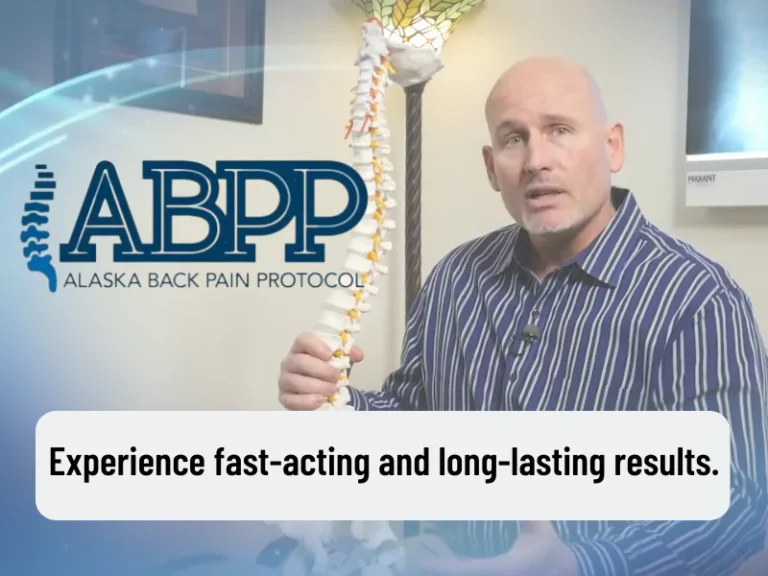Is your hip numb, tingly, or maybe prone to weakness because of a pinched nerve? Don’t fret. There are several simple ways of releasing it.
There are multiple types of treatments for a pinched nerve in the hip. These include simple measures like rest, gentle exercise, alternately applying cold and heat, chiropractic care, and simple over-the-counter medications. These techniques should resolve most pinched hip nerves.
Hip pain affects approximately ten percent of the general population. Its prevalence tends to increase as the population ages. A published study of American adults over the age of 60 found that 14.3% of those adults experienced noticeable hip pain most of the time for the six weeks prior to the report.
Naturally, men and women suffering from hip pain look for means to relieve it. Effective techniques, in part, depend on the cause of the pain. A common cause of hip pain is the one we are concerned with here: a pinched (or compressed) nerve.
Treatment of a Pinched Nerve in the Hip
Even the most diligent individual who follows all the appropriate healthcare advice can still wind up with a pinched nerve in the hip causing him/her excruciating pain. When this happens, it is, naturally, a good idea to get expert care and advice from a medical professional. Often, general practitioners will refer patients with such pain to a chiropractor for treatment.
The rule of thumb is that it is better to try non-invasive conservative treatments first before progressing to more advanced ones. There are several types of conservative treatments available that chiropractors and doctors will likely recommend after an initial diagnosis of a pinched nerve in the hip.
These treatments include:
1. Rest
To the great relief of many, rest alone can often resolve the issue of a pinched nerve in the hip without the use of further measures. Basically, rest allows the body’s normal healing processes to address the issue on its own. So, naturally, rest is usually the first recommendation.
Patients are told to take it easy and keep it off their feet for a few days. The good thing about rest is that you can do that at home! A fair number of other conservative techniques can be implemented at home along with rest.
2. Ice or Heat
The next suggested treatment is a common, and easily accessible one: the application of heat and ice to the affected area. This treatment is often used in conjunction with rest to speed recovery.
In fact, heat and ice are a common household remedy used for a number of chiropractic and musculoskeletal issues. How often have you used ice and heat to treat a pulled muscle, a back injury, or a twinge in the neck? It has a parallel use in treating a pinched nerve in the hip.
The reason these two techniques work is that they both serve to reduce swelling and aid healing in the affected area. Ice cools blood vessels causing them to contract. This, in turn, reduces swelling and inflammation, alleviating pressure in the injured area.
Heat helps muscles relax. This, also, helps reduce pressure in the affected area. Additionally, it increases blood flow which assists the healing process and alleviates pain.
It is generally recommended to begin this treatment first by applying ice or cold packs and then, after a session or two of cold, start applying heat. Once heat is first applied, it is usually recommended that you alternate between ice and heat going forward to produce maximum effect.
3. Therapeutic Exercises and Stretches
Another conservative technique commonly used that one can implement at home is a therapeutic exercise. Such exercises can include techniques to stretch tight hip flexors, yoga, and other slow, gentle stretching techniques.
Doctors typically recommend exercises like these to stretch and strengthen the muscles around the respective nerve. This helps improve posture and helps address many alignment issues, both of which can lessen compression on the nerve and thereby alleviate the problem.
Many of the techniques and stretches used for instant sciatica relief are also applicable here.
4. General Chiropractic Care
Chiropractic care can also be used to address a pinched nerve in the hip. Chiropractic care is used to realign misaligned bones and joints. A common cause of pinched nerves is pressure from an intruding piece of bone in the body. This, in turn, may be caused by poor posture. Chiropractic care is used to address these issues.
5. Over-The-Counter Pain Medications
Using over-the-counter pain meds like ibuprofen and naproxen will not only help mitigate pain, but it can also help reduce inflammation around the respective area. Reduced inflammation, very often, means reduced compression of the nerve in question.
As I said, conservative therapies like these are exhausted before more invasive (and potentially more dangerous) treatments like surgery.
For example, the National Library of Medicine records a case in the Journal of AthleticTraining in which a 17-year-old high school cross country runner was able – with a series of physical therapy exercises – to undo significant problems in the hip caused by improper mechanics that was so severe it had resulted in rotating the femur out of its normal alignment.
No surgery was needed – only a series of simple exercises.
Better Health Alaska offers a number of physical therapy modalities in Anchorage to assist in treatment.

Prevention of a Pinched Nerve in the Hip
Of course, the best treatment for a pinched nerve in the hip is to not get a pinched nerve in the hip in the first place. To that end, here are several things you can do in the way of preventive care:.
- Maintaining a healthy weight – More weight means more pressure directed downward across your body, which in turn can compress the nerves in the hip.
- Getting regular exercise – Exercise can help you maintain a healthy weight and strengthen muscles to straighten hips that are not aligned.
- Regular chiropractic care – Among other things, regular chiropractic hip adjustments improve posture, which, in turn, keeps your muscles and skeleton properly aligned. This keeps them from pinching nerves in the hip.
As they say, “An ounce of prevention is worth a pound of cure.” If you have a history of hip issues, incorporating the above into your regular lifestyle can help..
What Causes a Pinched Nerve in the Hip?
A pinched, or compressed, nerve is the result of pressure being applied to the nerve. The pressure, in turn, serves to “pinch” the neural pathway obstructing normal neural activity. This results in pain.
The source of the pressure may be misaligned bone, cartilage, or simply inflamed tissue. When occurring in the hip, the most common causes include:
- obesity
- sitting for too long
- herniated disc
- arthritis
- a bone spur
- strain in the respective muscles
- being pregnant
As you can see, the causes of a pinched nerve in the hip are quite varied. And, naturally, different causes will require different treatments. Obesity, for example, will likely just require a change in diet, an increase in exercise, or both.
This, of course, points to the importance of proper diagnosis. A qualified chiropractor will be able to diagnose the problem and its cause. From there, the chiropractor will be able to recommend and implement the appropriate treatment.
What Does It Feel Like?
There is no one readily-identifiable symptom that indicates the presence of a pinched nerve in the hip. The effects of a pinched nerve in the hip can manifest in many ways. These include:
- Simply pain in the area of the hip where the nerve is located (the site of compression)
- A numbness or tingling sensation
- A sensation of weakness when engaging in particular activities.
- A type of radiating pain like that caused by sciatica
- A feeling of “pins and needles.”
- Or a burning sensation
As you can see, many different symptoms may or may not be present if you have a pinched nerve in the hip. Naturally, you’ll need a medical expert to diagnose the issue. Once properly diagnosed, you can begin whatever regimen of treatments is required.
Conclusion
A pinched nerve in the hip can be a painful, aggravating injury. Fortunately, though, there are effective treatments and home remedies for such an injury. However, the first step should always be to get a proper diagnosis and assistance from a medical professional.
Sources:
https://www.ncbi.nlm.nih.gov/pmc/articles/PMC8022067/
https://pubmed.ncbi.nlm.nih.gov/11978258/
https://www.ncbi.nlm.nih.gov/pmc/articles/PMC1821289/?page=1









